Part-Time Self-Employment in Switzerland: The Essential Aspects
The idea of part-time self-employment has gained significant traction in recent years, especially in progressive countries like Switzerland where a flexible and dynamic workforce is valued, and workers are encouraged to explore their entrepreneurial passions. In this article, we delve into the fundamental aspects of part-time self-employment in Switzerland, exploring what it entails, who can become self-employed part-time, its advantages and disadvantages, important legal considerations, and common questions you might have about this interesting mode of work.
Book a free initial consultation with our experts.
Book a callHighlights
- Part-time self-employment involves working independently alongside employment or studies
- Advantages include additional income. Disadvantages include increased stress
- Legal considerations: duty of loyalty, social security contributions, taxes and registration
- You must register with the compensation fund for annual income exceeding CHF 2,500 (2025)
- Foreign citizens and cross-border commuters can take up self-employment with the correct permits
Content
- Part-Time Self-Employment in Switzerland: The Essential Aspects
- Highlights & content
- Check out our video on YouTube!
- What is part-time self-employment?
- Who can become self-employed part time in Switzerland?
- What are the advantages and disadvantages of part-time self-employment?
- What are the legal considerations of part-time self-employment?
- How can foreign nationals pursue part-time self-employment in Switzerland?
- Ready to start your part-time business journey?
- Trusted by over 150 companies
- FAQ
Check out our video on YouTube!
What is part-time self-employment?
From a social insurance perspective In Switzerland, you are considered “self-employed” if you work independently in your own name and for your own account and bear the economic risk of said work. Therefore, part-time self-employment (sometimes known as a “sideline”) means you carry out self-employed work activities in addition to your full-time employment or other primary activities (e.g., studies).
For such work to be considered part-time, the income should be significantly lower than that earned from your primary job, and the part-time working activity should not interfere with your main job and be conducted outside of its working hours.
Book a free initial consultation with our experts.
Book a callWho can become self-employed part time in Switzerland?
There are no restrictions on who can take up part-time self-employment. Individuals from various backgrounds, including professionals, students, and homemakers, can explore self-employment opportunities while managing their other primary responsibilities. Cross-border commuters and foreigners may also take up profit-making self-employment activities in Switzerland subject to certain requirements being met (more on this later).
Small and medium-sized enterprises (SMEs) make up over 99% of commercial companies in Switzerland and create two-thirds of the jobs in the country, according to the Federal Statistical Office. This thriving ecosystem makes Switzerland particularly welcoming for new entrepreneurs.
That said, there are important factors to consider before embarking on part-time self-employment:
Firstly, it is recommended to have a stable source of income from elsewhere, be it a secure full-time job, or another guaranteed source of funds. This is especially important at the beginning of taking up part-time self-employment where a stable income source will make it easier to explore your entrepreneurial activities without unnecessary pressure. Generally, part-time self-employment activities are meant to function as a supplementary income stream and shouldn’t be relied on for covering your primary living costs.
Another consideration is your personal capacity to take on additional work. Part-time self-employment may be rewarding, but it also comes as an added time strain. You should be ready and able to take on this added burden on top of your main job, without damaging your performance or quality of life.
Calculate the costs of your company incorporation here.
PricesWhat are the advantages and disadvantages of part-time self-employment?
Advantages
Part-time self-employment is an exciting and rewarding venture that offers many benefits:
- Flexibility: One of the primary advantages of part-time self-employment is that it offers excellent flexibility. You can set your own working hours and choose where and how to direct your energy. This allows you to find the right balance between your part-time work, your full-time work, family, and other personal pursuits.
- Low-risk: Part-time self-employment aims at providing a fulfilling way to generate a side-income. This means it is much less financially risky than starting your own business as your main job, where your financial stability depends on your success in doing so. Taking up part-time self-employment while continuing with your main job means you can be sure of covering your basic expenses while having the freedom to pursue your personal work projects pressure-free.
- Additional income: If your part-time business ventures are successful, you can benefit from the additional income stream that supplements in addition to the income you already earn from your primary work. Having a sideline also enables you to diversify your sources of income, thereby reducing financial dependence on a single job or employer.
- More time to build your business: when you take up self-employment part time, you have more time at your disposal to build a successful base for your business without the pressure of needing to immediately make a profit. This allows you to analyse the market over a longer time frame and thoughtfully create a sustainable independent business.
- Better financing options: Starting a side venture gives you many options when it comes to funding. By continuing with your full-time job, you potentially have a direct means of financing your personal entrepreneurial activities with your salary. It is also easier to get financing and loans from banks if you start a business on the side, as the income from your full-time job lowers the risk of default and thus improves your creditworthiness.
Disadvantages
While there can be many benefits to taking up part-time self-employment, there are also some downsides to consider:
- Increased stress: One of the greatest difficulties with part-time self-employment is being able to strike the right work-life balance. The additional burden of part-time self-employment along with your main job can make things more stressful, and lead to less time for your personal life and family. This can ultimately result in burnout and underperformance in both areas if not properly managed.
- Limited Benefits: Unlike full-time employment, part-time self-employment won’t give you access to the same employer benefits such as health insurance, paid leave, benefits in kind, or occupational pension plans, which are typically provided by full-time employers. This is of course negated if you also have a full-time job which can provide those benefits.
- Limited time and energy: Starting your own venture requires a lot of dedication and time to maximise the chances of success. This can make it difficult to accomplish in addition to keeping up a full-time job. You might experience challenges in finding the time to develop your part-time work, and this could needlessly delay or even ruin your chances of success altogether.
- Variable income: Part-time self-employment often comes with income fluctuations, making it difficult to predict earnings and plan your finances accurately. This can pose financial challenges, especially if you do not have a stable income source from elsewhere. It is also one reason why it can in fact be good to engage in part-time self-employment alongside a stable full-time job as opposed to pursuing full-time self-employment.
Book a free initial consultation with our experts.
Book a callWhat are the legal considerations of part-time self-employment?
The main legal considerations include adhering to your duty of loyalty to your primary employer, registering with the compensation fund, paying social security contributions (AHV/IV/EO), and declaring all self-employment income on your tax return. Understanding these requirements is essential to ensure compliance and avoid legal issues.
Duty of loyalty to your primary employer
If you have a full-time job and decide to take up part-time self-employment alongside it, you must adhere to the duty of loyalty to your primary employer. Basically, this means avoiding conflicts of interest and ensuring that your self-employment activities do not interfere with your obligations to your employer.
The duty of loyalty is a legal obligation that is outlined in Art. 321a of the Swiss Code of Obligations (OR). The duty of loyalty is seen to be violated if the part-time work in question:
- Directly competes with the primary employer (e.g., serving company clients on a private basis),
- Negatively impacts the company’s reputation,
- Impairs the employer’s performance to the extent that they are unable to properly fulfil their obligations to the company.
Social security contributions
As with full-time employees, self-employed individuals must generally also contribute to the 1st pillar old-age and survivors’ insurance (AHV/IV/EO). The 1st pillar is important for any working professional as it allows you to cover your living needs in old age or compensate your family in the event of death.
Self-employed individuals pay AHV/IV/EO on their net self-employment income at a degressive rate (approx. 5.371%–10.0%). At higher incomes (around CHF 60,500 and above), the maximum rate is 10.0%. Employees pay 5.3% while their employer pays another 5.3%, totaling 10.6% (AHV/IV/EO), as of 2025.
Here are some important details regarding social security contributions if you are self-employed part-time:
- If you are in full-time employment and your income is insured with the AHV, you must still register your self-employed secondary occupation with the compensation office, unless your annual income does not exceed CHF 2,500 (as of 2025), in which case contributions to the AHV will only be levied at your request.
- If you are self-employed as a secondary occupation and belong to a professional association, you must generally join the professional association and pay into its funds in addition to the compulsory social insurance.
- Daily sickness benefits insurance is not compulsory
- If you employ staff as part of your self-employment, you must also register them with the social insurance schemes (AHV, IV, family allowances, etc.).
Tax considerations
Income generated from part-time self-employment must be declared on your tax return and is subject to income tax in the same way that the salary from your main employment is. Self-employed individuals are required to file their taxes independently, therefore keeping accurate records of income and expenses is essential for tax purposes.
If you use a sole proprietorship to conduct your part-time business, the income from these activities is taxed normally along with your regular income. However, if you operate a GmbH or AG, you need to keep in mind the potential for double taxation, in that the profits are taxed at the corporate level and then again as personal income tax when they are withdrawn in the form of dividends and/or salary.
Understanding the tax implications of self-employment is vital to avoid legal issues in the future and optimise your personal tax liability.
Registrations requirements
You are required to register with the compensation fund to become legally recognised as a self-employed person in Switzerland. To do so, you must fill out the registration form available on the compensation fund’s website. You will also need to attach the required documents such as copies of invoices that you have already issued, business agreements, company address and rental agreement, insurance policies, etc.
Furthermore, if you decide to incorporate a legal business entity through which to conduct your self-employment, such as a GmbH or AG, you will be required to formally register the company into the corporate register and fulfill all other obligatory registration requirements for incorporating a new company in Switzerland.
Here you can easily calculate the costs of your accounting.
Price calculatorHow can foreign nationals pursue part-time self-employment in Switzerland?

Foreign nationals can become self-employed in Switzerland, but they must obtain the necessary permits and meet specific criteria outlined by Swiss immigration authorities.The permit requirements and application processes differ substantially between EU/EFTA nationals and third-country nationals.
What are the requirements for EU/EFTA nationals?
EU/EFTA nationals are allowed to engage in profit-making activities in Switzerland relatively easily. They simply need to apply to the Cantonal Migration Office, and upon approval, a residence permit (B permit) will be issued which is valid for 5 years and renewable thereafter. This allows them to work in a self-employed capacity in Switzerland.
What about third-country nationals?
Nationals from outside the EU/EFTA (“third-country nationals”) must go through a lengthier application process to be able to work in Switzerland, whether it be in a full-time employed capacity or pursuing their own part-time self-employment or entrepreneurial activities. A C permit (settlement permit) is usually required for the main applicant, or else they should be married to the holder of a C permit or Swiss citizen. In some cases, third-party nationals may need to submit a specific application to the cantonal authorities to take up profit-making activities in Switzerland.
How do cross-border commuters become self-employed?
You can work in a self-employed capacity in Switzerland as a cross-border commuter, but you must obtain a cross-border commuter permit (G-permit) from the cantonal population office in which you plan to work. This allows you to work and live in the specific Swiss canton you have applied to provided you return to your primary place of residence at least once a week.
Calculate the costs of your company incorporation here.
PricesReady to start your part-time business journey?

Part-time self-employment in Switzerland offers excellent opportunities for additional income and entrepreneurial growth. However, navigating the legal requirements, tax implications, and administrative processes can be complex without professional guidance.
Nexova offers practical support for Swiss entrepreneurs looking to take up part-time self-employment, including compensation fund registration, social security compliance, tax planning, and permit assistance for foreign nationals. Our experienced team helps startups and small businesses ensure proper setup and ongoing compliance with Swiss regulations.
We provide the expertise, dedication, and unwavering support you need to succeed as a self-employed professional in the Swiss business landscape. Contact Nexova today to discuss your specific self-employment requirements and get expert guidance on the legal and administrative aspects.
Trusted by over 250 companies
Discover the diversity of our customers

As an internationally active biotechnology company that stands for innovation and the highest quality, we work exclusively with partners who meet our high standards. Nexova consistently impresses us with exceptional service quality, robust processes, and an impressive pace. The professional, solution-oriented, and efficient collaboration allows us to fully focus on our core business. Additionally, we would like to highlight the remarkable cost savings of 35% compared to in-house accounting. We particularly appreciate how Nexova quickly understands, develops, and promptly implements complex requirements – both within Switzerland and at our international subsidiaries. We can wholeheartedly recommend the Nexova team.

Nexova AG offers highly professional accounting services that have significantly enhanced our financial management at Learning Lab. Their team is precise and reactive, always delivering accurate and timely reports while promptly addressing our queries. With Nexova AG’s support, we manage our clients’ accounts and finances more efficiently. We highly recommend Nexova AG for their exceptional accounting services.

For us as a new catering company, it is essential that our trustee understands our specific needs and responds flexibly to our requirements. In Nexova AG, we have found the ideal partner who supports us competently in all fiduciary matters and actively promotes our growth.

Uncomplicated or serious? Or is it and? A young, clever team is at work here, offering excellent services, highly uncomplicated and competent. Instead of a prestigious reception, expensive offices and chocolates, there are fast services and competent services. For me as a one-man company, this is exactly what I need.

Arvy AG has found an exceptional partner in Nexova AG. Their very high level of expertise in FINMA-regulated industries ensures that our financial transactions are in safe and competent hands. What sets Nexova apart is their flat-rate pricing structure, which has helped us greatly with budgeting and financial planning. As a company committed to long-term success and integrity in investments, we are very satisfied with the services provided by Nexova AG.

For us as an EdTech startup, it is very important that our trustee is as digital and agile as we are. With Nexova AG, we have found the perfect partner who can actively support us in our growth.
FAQ
Answers at a click
Do you have to inform your employer about your part-time self employment?
You are generally not legally required to inform your main employer about your part-time work activities, and they don’t have a right to stop you from pursuing such activities so long as they don’t violate the duty of loyalty discussed previously. However, it is always recommended to maintain a transparent relationship with your employer and informing them of your part-time work activities can be a good way to do this.
If there are no conflicts of interest and the work doesn’t negatively affect your performance in your main job, your employer shouldn’t have any reservations. In fact, part-time self-employment may even be seen favourably by some employers in Switzerland, where a flexible and innovative workforce is highly valued. The skills and experience you get from your part-time work could actually contribute positively to your main job.
Can you become self-employed part-time if you don’t have a main job?
Yes. Even without a main job (e.g., as a student, job seeker, or freelancer) you can pursue part-time self-employment. Whether and how this affects your status or benefits depends on your individual situation (e.g., unemployment insurance rules, study regulations, residence status).
You should clarify your case with the relevant authority if in doubt and declare your self-employment to the compensation office where required.
How much can I earn before registration with the compensation fund becomes mandatory?
You must register with the compensation fund if your annual self-employment income exceeds CHF 2,500 (as of 2025). Below this threshold, registration is optional but you can voluntarily contribute to AHV to avoid gaps in your pension contributions.
What business support is available for part-time entrepreneurs?
Switzerland is a country where startups are given the opportunity to grow and thrive. According to StartupBlink’s Global Startup Ecosystem Index 2025, Switzerland’s startup ecosystem is ranked 9th globally in 2025 (climbing one spot from 2024), with an annual growth rate of 31.8%.
With its business-friendly environment and strong support ecosystem, Switzerland provides various resources for entrepreneurs including government programs (such as SECO’s EasyGov.swiss portal), cantonal business offices (e.g. Geneva’s Office cantonal de l’économie et de l’innovation), and professional advisory services (e.g. Innosuisse coaching).
How do I handle taxes when I have both employment and self-employment income?
Both income sources are declared on the same tax return and taxed together as total income. Keep detailed records of your self-employment income and expenses separate from your employment income for accurate reporting.
Can I deduct business expenses from my part-time self-employment taxes?
Yes, legitimate business expenses are fully deductible from your self-employment income. Common deductions include office supplies, professional development, travel costs, equipment purchases, and home office expenses. Proper documentation and receipts are essential for tax compliance.

